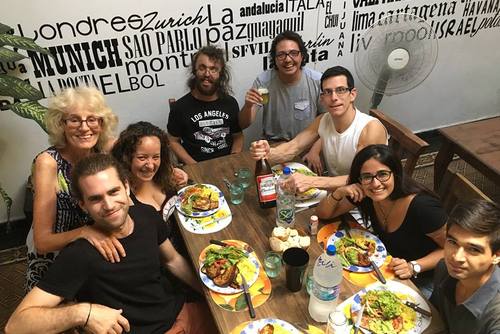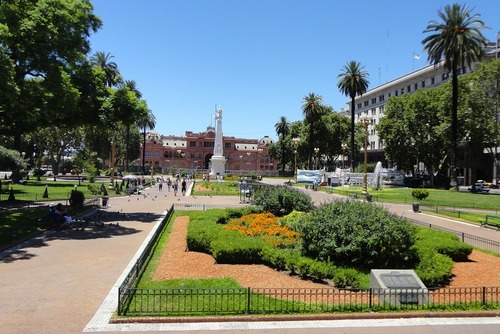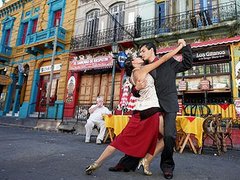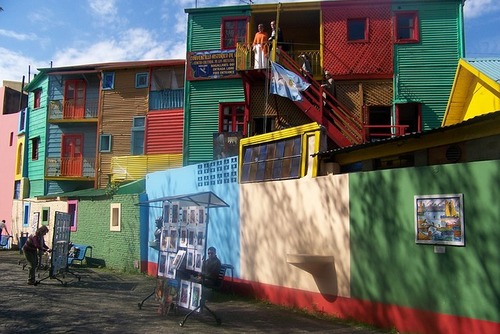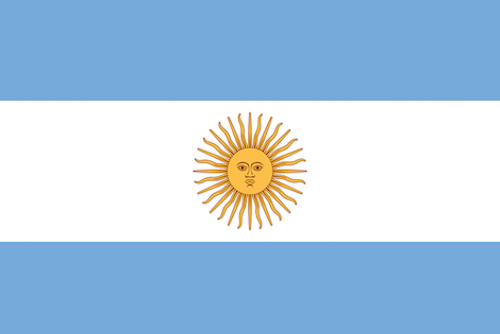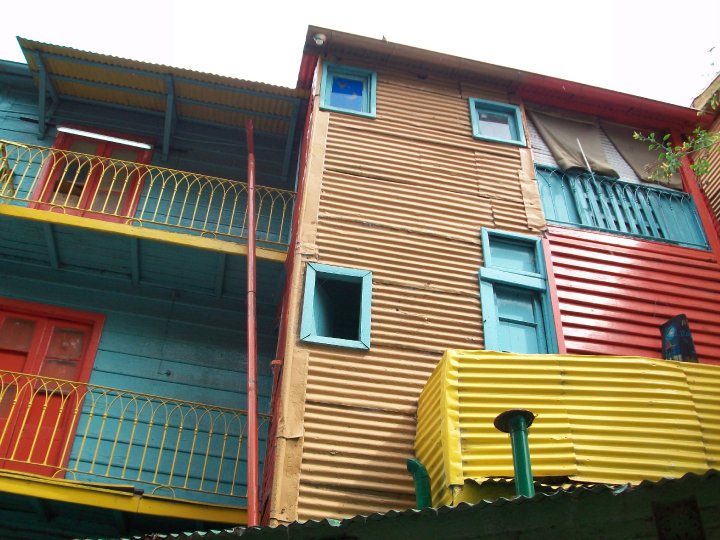A Guide to Working in Argentina

Argentina is a South American country being bordered by Chile to the West and South, Bolivia and Paraguay to the north and Brazil and Uruguay to the northeast.
The country is officially known as the Argentine Republic and is comprised of 23 provinces and the autonomous city of Buenos Aires, the nation’s capital. Argentina is a recognised regional and middle power and is the third largest economy in Latin America. It has the fifth highest nominal GDP per capita.
On the country’s western fringe are the Andes mountains and the South Atlantic is located to the south and east. In the centre of the country lies the Pampas an area of fertile lowlands, to the south of that is the Patagonia, a vast plateau to the South.
The generally temperate climate ranges from subtropical in the north to sub polar in the far south. The north is characterized by very hot, humid summers with mild drier winters, and is subject to periodic droughts.
Central Argentina has a temperate climate, with hot summers with thunderstorms, and cool winters; and higher moisture at the east. The southern regions have warm summers and cold winters with heavy snowfall, especially in mountainous zones.
Best Places to Work in Argentina
Whether you are looking to take gap year in Argentina and looking for casual backpacker jobs, or fancy a full time relocation, you are more likely to find work in the larger towns and cities including:
- Buenos Aires
- Córdoba
- Rosario
- Mendoza
- San Miguel de Tucumán
- La Plata
- Mar del Plata
- Salta
- Santa Fe de la Vera Cruz
- San Juan
Popular Industries to Work in Argentina
These are the main areas to find work:
- Advertising
- Au Pair
- Creative Arts/Media
- Ecology/Conservation
- Education
- Engineering
- Healthcare
- Hotels
- Hospitality
- IT
- Marketing/PR
- NGO/Non-Profit
- Sales
- Teaching
- Telecommunications
- Tourism/Travel
Jobs for Backpackers in Argentina
One option which is popular with backpackers and travellers in Argentina is to work in exchange for food and accommodation. Lots of hostals and hotels offer these types of jobs throughout Argentina. Most posiitons are unpaid but usually you wil get free board and food whilst some places offer a stipend salary and other free benefits. You might like to read this article about working at the Rivera Hostal in Cordoba.
Tips for Moving to Argentina
While working in South America, there are so many potential priorities vying for your time and attention. From the need to get to grips with the language to the necessity of learning the layout of your local area, there are so many things clamouring for your attention from the moment you move in.
However, it is essential to ensure that you don’t get sucked in to thinking that acclimatisation is all work and no play. While it’s obviously important to get into the mind-set of your new job and surroundings as quickly as possible, taking the time to discover activities that are fun as well as relevant can be equally as important.
It’s natural to find working in a foreign country a stressful and complicated process that taxes you both physically and emotionally. Even if you don’t have a new language to familiarise yourself with, the people, customs, local geography and pace of life can all add up to make things seem a little bewildering at times. This is why it’s vital to get out there and do something that is fun as well as educational and helpful in letting you understand the local culture.
For example, in Argentina then one ideal method of combining culture with recreation would be to experiment with some tango. This sultry, vibrant form of dance is a national treasure and as such it is considered a cornerstone of Argentinian culture. Not only will learning the dance help you understand a little better what makes the Argentinians tick, but it’s also an incredibly energizing experience and a lot of fun to boot.
Taking fun classes in your local area and learning dances like Argentine tango is also a great way to meet people and engage in an activity where there is no language barrier, only the rhythmic language of quick stepping feet and twirling bodies!
One of the great things about getting involved in national pastimes is that it gives you something fun to do that is also an excellent talking point. This can be essential in helping you make a good impression at work and in social contexts where you can tap into the psyche of local people and strike a rapport with them.
Activities that are deeply imprinted in the national psyche often appeal to people of all ages and stages in life. Argentine tango classes are no exception as they are designed to be as inclusive as possible to appeal to anyone regardless of their physical fitness level.
No matter what you do, always make time to have fun. This can be as immersive as any number of Spanish language classes in Argentina or workshops. Getting to see the locals doing what they love and joining in with them is a sure-fire way to ingratiate yourself with them and keep yourself grounded at the same time.
FAQ
Money
The Peso is the currency of Argentina and is identified rather confusingly with the Dollar symbol. It is subdivided into 100 centavos. The current version of the Peso came into circulation in 1992 and was fixed to the US Dollar, but after the finacial crisis of 2001 this fixed rate system was abandoned. Peso notes currently in circulation are AR$ 2, 5, 10, 20, 50 and 100. Coins in circulation are of 1, 5, 10, 25 and 50 centavos and 1 peso. Be very careful with accepting change in Argentina. Especially in Buenos Aires there is a large amount of counterfeit money in circulation.
Cost of Living
The cost of living in Argentina is noticeably cheaper than in the UK/Europe and north America. If you move to the nation with a good amount of funds saved up then you can easily live comfortably. However if your emigrating in search of work and have not much saved then you could find it a struggle as wages are very low.
How to Open a Bank Account
To open a bank account in Argentina will need to show a valid passport and proof of residency. The amount needed for a minimum deposit varies from AR$1,000 to the need to provide a valid employment contract which ranges from 6 months to 1 year. Bank accounts in Argentina can opened with Pesos or US Dollars.
As an example, Banco La Nación has the following requirements for foreigners to open an account:
- Bring your original Identification Document and a copy
- Proof of domicile (gas bill, telephone bill, etc.)
- Your CUIL ( Código Único de Identificación Laboral)/ CUIT ( Código Único de Identificación Tributaria) / CDI (Carnet de Identidad) CUIL is a number given to every employee upon starting to work for an employer. CUIT is a personal number you need to pay taxes. CDI is your Identification Card number.
- Initial deposit. To open an account in pesos, this should be at least AR$10. For a dollar account, the initial deposit is US$ 500.
- Annual maintenance costs of the account are AR$ 6 for a peso account, and US$ 2 for a dollar account. The costs include a Maestro debit card.
Related Pages


